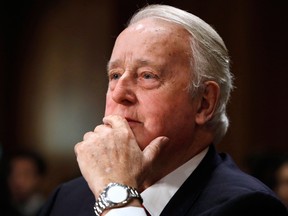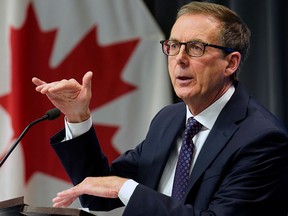Former Prime Minister Brian Mulroney has expressed his disappointment with the current state of affairs in handling the crisis in oil pipeline capacity. In a recent speech at the Franklin Templeton 2019 Global Market Outlook event, Mulroney stated that Ottawa has "abdicated the leadership of the national government" to interest groups when it comes to addressing this critical issue.
A National Priority
Mulroney emphasized that addressing the crisis in oil pipeline capacity is a national priority. He argued that Canada has an abundance of oil reserves, estimated at 175 billion barrels, which could be benefiting all Canadians across the country. However, due to the current stalemate, this resource remains untapped.
Stakeholders in the Project
Mulroney proposed his own strategy for addressing the pipeline crisis. He suggested that First Nations, environmental groups, and provincial premiers should be made stakeholders in a project to construct pipelines running east, west, and south. If these groups refused to support him, Mulroney stated that he would move ahead anyway, allowing Canadians to decide whether they support his vision or not.
A Lesson from History
Mulroney drew upon his experience with the Canada-U.S. Free Trade Agreement (FTA) in 1988. Despite criticism and scaremongering by opponents, Mulroney pushed forward with the agreement, which has since seen trade volumes triple to over $881 billion today. He argued that Canadians have shown their willingness to support projects that benefit the country as a whole.
The Benefits of Free Trade
Mulroney highlighted the benefits of free trade, citing the example of the Canada-U.S. FTA. He stated that both countries have done extremely well out of the agreement, with the U.S. enjoying an unemployment rate of 3.8%, the lowest among industrialized nations.
The New USMCA
Mulroney also praised the new U.S.-Mexico-Canada Agreement (USMCA) for modernizing NAFTA and maintaining key provisions such as Chapter 19 dispute settlement mechanism. He noted that the deal increases the amount of parts and raw materials in a vehicle that must come from American or Mexican sources, benefiting workers earning at least US$16 an hour.
Challenges Ahead
Mulroney acknowledged that the ratification process for the USMCA is still ongoing and faces challenges, particularly in the U.S. Congress. He expressed his optimism that the deal will pass but noted that it may take some time to navigate the complexities of international trade agreements.
The Trade War with China
In a separate development, Mulroney commented on the 90-day trade truce reached between the U.S. and China at the G-20 summit. He acknowledged that the talks will be "very complicated" and "very tough," but expressed hope for a successful outcome.
Conclusion
Mulroney’s comments serve as a reminder of the importance of effective leadership in addressing national priorities, such as the crisis in oil pipeline capacity. His experience with the Canada-U.S. FTA and his views on the new USMCA demonstrate his commitment to free trade agreements that benefit all parties involved. As the world navigates the complexities of international trade, Mulroney’s insights offer valuable lessons for policymakers and business leaders alike.
Recommendations
- Increase transparency: The Canadian government should increase transparency in its decision-making process regarding the pipeline crisis.
- Engage stakeholders: First Nations, environmental groups, and provincial premiers should be engaged as stakeholders in the project to construct pipelines running east, west, and south.
- Support free trade agreements: Canada should continue to support free trade agreements that benefit all parties involved, such as the new USMCA.
Sources
- Franklin Templeton 2019 Global Market Outlook event
- "Canada-U.S. Free Trade Agreement" (1988)
- "U.S.-Mexico-Canada Agreement" (2020)
- G-20 summit (2018)
Related News Stories



